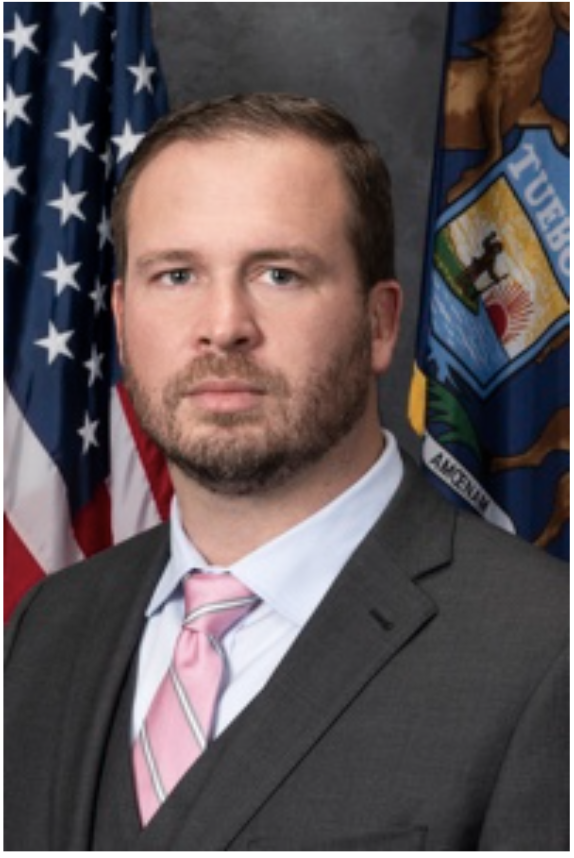
Michigan Senate
Republican Sen. Jonathan Lindsey of Allen.By SOPHIA CERU
Capital News Service
LANSING – Transgender individuals in Michigan worry about continued access to gender-affirming medical care following the Ohio Legislature’s successful effort to restrict such care for minors.
Sen. Jonathan Lindsey, R-Allen, says he wants Michigan to pass a similar law to protect young people.
But critics of such a proposal counter that such a law would be discriminatory and unnecessary and would intrude on individual and family medical decisionmaking.
Lindsey and some other lawmakers have discussed moving forward with such legislation.
“We are not looking at bans of gender-affirming care. We are looking toward educating the youth and health care providers about what these (transgender) individuals want to do,” says Lindsey.
Lindsey said providers should question people who seek gender-affirming care, asking, for example: Why do you think you identify with another gender? Do you truly believe and see yourself as another gender? Have you felt this way for a long duration of time?”
“The legislation would discourage penalizing a doctor who takes a fair approach and exercises every other option before finally deciding that the individual should switch their gender,” Lindsey says.
In January, Ohio Gov. Mike DeWine’s veto of a bill blocking minors access to gender-affirming care was overruled, putting the law into place, according to the Ohio Legislature website.
That means minors in that state no longer have access to gender-affirming care for trans and nonbinary youth, hormone blockers, hormone replacement therapy, medical and surgical procedures and some mental health services, according to the new law.
Jay Kaplan, a staff attorney for the American Civil Liberties Union of Michigan, says there are dangers in taking away gender-affirming care.
After the Ohio Legislature overturned DeWine’s veto, Lindsey and Republican Reps. Brad Paquette of Niles, Josh Shriver of Oxford and Tom Kunse of Clare and Sen. Lana Theis of Brighton all spoke favorably about the ban on social media.
As for some Michigan legislators supporting Ohio’s approach, Kaplan called such action “cynical,” adding, “This was a calculated political decision to do this.”
“Transgender individuals have been accessing gender-affirming care for decades, safely and under medical standards,” Kaplan says.
Kaplan also criticized erroneous assumptions about the transgender community. For example, “most minors don’t undergo gender-affirming surgeries. Their focus is more on hormone therapy and puberty blockers,” he says.
“Minors can’t make these gender-affirming surgeries by themselves. The parent or guardian makes those decisions for them or on behalf of them, and after long consultation with a doctor,” Kaplan says. “Gender confusion and struggling with your gender identity is not a reason to ban gender-affirming health care.”
In January, the head of Florida’s Department of Motor Vehicles, Director Dave Kerner announced that trans adults can no longer change their gender on drivers’ licenses.
According to the advocacy group Human Rights Campaign, 22 states have passed laws restricting gender-affirming care. Ohio’s recent law change makes it 23rd.